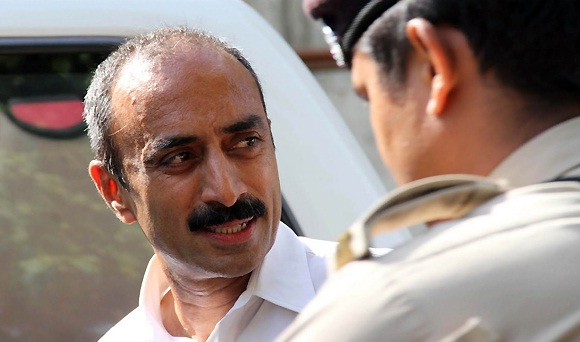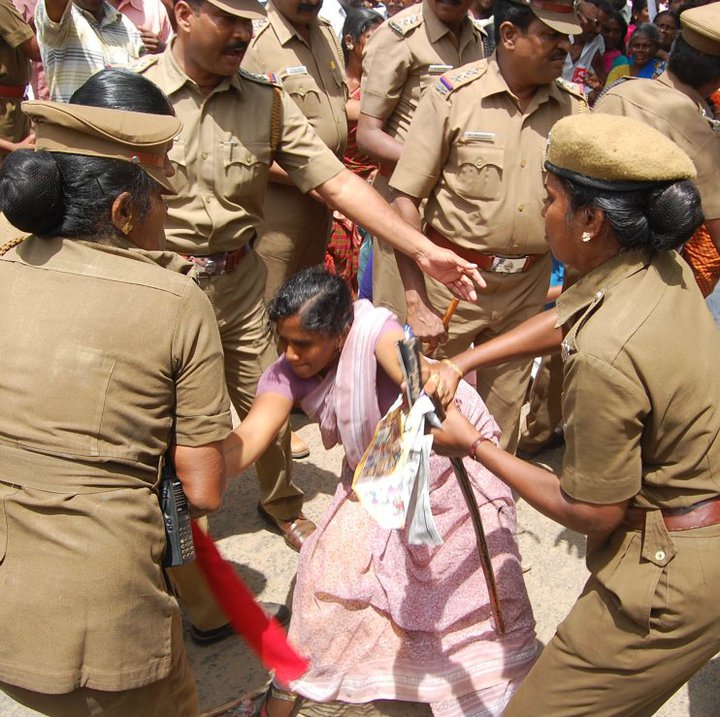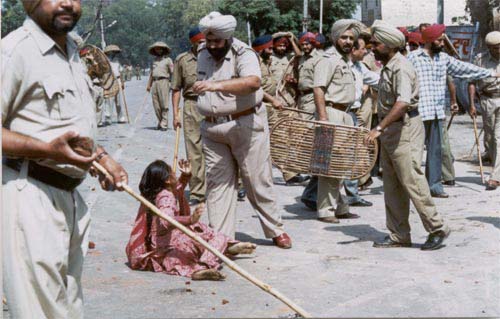
Page-1
|Page-2|
Page-3
|Page-4|Page-6
|Page-7
|Page-8
|Page-9
|Page-10
| BaKhabar  Download pdf Download pdf
|
| Mr. Modi,
you are not welcome: Wharton Debate
.... By Ram Puniyani*
 The withdrawal of invitation for Narendra Modi to speak at Wharton Business School of Pennsylvania (March 2013) has been looked at in different ways by different commentators. Those who are opposing the invitation withdrawal, point out that it is a violation of the norms of freedom of speech. They say that Modi is an elected person in Indian system and his views on development of Gujarat under his leadership need to be heard by the people from business circles. Those opposing his invitation argue that inviting him is like giving legitimacy to his total record. His role in Gujarat violence, his failure to prevent the carnage and give justice to the violence victims cannot be delinked from his so called development. They point out that as far as debating and engaging with Modi is concerned it cannot be achieved by inviting him as a key note speaker; this invitation already gives a high pedestal and recognition to him. He should be interrogated, engaged and debated with on different forums which give equal ground to those wanting to debate with him. They also point that Gujarat’s development is a lopsided one, it is projected more than what the reality is. In Gujarat the levels of malnutrition, child and maternal mortality is higher, Gujarat is comparatively low on human growth index. The anti SC/ST atrocity cases are one index of human rights record of the state. In taking these cases of atrocities against SC/ST Gujarat is lowest on the rung, with only 25% convictions. According to analysts the growth of Gujarat is more of propaganda as many other states have done much better during this period. The lowest in the scale of development in Gujarat are minorities and SC/STs. Modi was invited by the students of Wharton to speak on Gujarat’ development. After this a few Professors circulated a petition asking for withdrawal of the invitation. Within just few hours the petition got a massive response and was signed not only by the professors, many others: alumni, the students, doctor’s lawyers and other stake holders also supported the petition. The large number of signatures and the logic which the petition put forward clinched the issue and students, who are the ones to decide, withdrew the invitation. The United States has denied VISA to Narendra Modi since 2005, despite his being an elected Chief Minister of the state. The Commonwealth countries so far have been keeping him at arm’s length, but after his third victory, these countries want to mend the relationship with him, as his projection as the Prime Ministerial candidate are floating around in a strong manner. US had denied him VISA for his role in the carnage of 2002, and the denial continues. Similarly due to popular pressure after sustained campaigns; the activists groups succeeded in stopping the huge dollar funding from US to the RSS affiliate ‘India Development Relief Fund’ was collecting huge amounts and supporting the political work of RSS combine in the garb of cultural work. This RSS combine’s work is essentially to build up Hatred against minorities, through its various organizations. While one is aware about the role of America in the promotion of politics of terror, in the formation of Al Qaeda in particular, while it is also known that US is out to attack other countries to promote its political-economic interests, at the same time there are various norms which different wings of American state follow. There are various civic norms which are stringent and are aimed to sustain and promote democratic values. The Civil society has also been campaigning to use this space, democratic-liberal one provided by these provisions of US system and try to stop the violation of human rights and retrograde activities in different places. This is a contradictory situation. The state by and large in its foreign affairs is like a Big Brother, violating all the laws of international behavior and laws and intimidating the smaller powers. There is no doubt about its role in international affairs, as a super power; it is undermining the global democracy; it has mauled the emerging global democracy amongst nations, which was getting expressed through rising clout of United Nations, has been sabotaged by US in particular. As a state it has promoted dictators and has been thick as thief with different dictators and autocrats. At another level, the civic society has come up steeped in civility with respect for the norms of modern democracies, to some extent. So we see the dichotomous processes going on here. It is due to this pressure of prevailing norms and civil society campaigns that US is denying Visa to Modi. Is this denial of Visa to Modi an insult to our country? No way. It just shows us the mirror of the state of affairs in our country. Many a US bodies do keep monitoring phenomenon like, Religious freedom in other countries. Many of them keep making a list of terrorist organizations. All this monitoring is showing the diversities of our societies. In the same set up we are seeing two contradictory phenomenons. Coming back to Modi, Wharton student’s body has gone more by the norms of civil society; has recognized that Modi may be claiming and many others may be buying his story of development, but the truth lies somewhere else. The petitioners opposing the Modi invite correctly point out that Human rights issues and development cannot be separated. As far as Modi being a democratically elected person is concerned, the analysts can point out that his victory has been based on his politics of polarization, not on the inclusive politics. He has successfully scared the majority community about the threat of minority community. This goes on and on to make the foundations of his victory and there by his followers claiming that he has been elected, so all is well. Only thing they ignore at this point is that even Hitler had come to power through democratic means. As far as his development is concerned it is de facto the development of industrial houses. One such industrialist, Adani, was the sponsor of Wharton meet. He withdrew his sponsorship the moment invitation to Modi was withdrawn. Modi’s mode of ‘development’ means giving all freebees to Tata, Adanai, Ambani and company while the poor one’s are getting more marginalized. This invitation being taken back just reflects that Modi’s propaganda has been punctured and a reminder that the violation of human rights violation of the weak cannot be exonerated at any cost. ------------------- * Ram Puniyani (born 25 Aug 1945) was a professor in biomedical engineering at the IIT Bombay. He is involved with human rights activities, for communal harmony, has taken initiatives to oppose the rising tide of Fundamentalism in India. He is a pillar of secular and democratic initiatives like All India Secular Forum, Center for Study of Society and Secularism and ANHAD. His write-ups appear in reputed Indian newspapers, regularly. He can be contacted on ram.puniyani@gmail.com  |
The role of
Indian police
.... By Ram Puniyani*
 About 17 years ago a book on communal riots and Indian police was published in English, Hindi and Urdu and was well received in earnest circles. Its author was Vibhuti Narain Rai, a senior officer of Indian Police Services. After a long research of one year, he, in the light of ground realities and authentic information, brought to the notice of the nation the irresponsible behaviour of Indian police and its heinous role in riots. But in fact this was not a book rather a research document which he had put before the police establishment for serious consideration so that police behaviour might be reformed in its light. But the police system totally neglected it. Therefore, Mr. Rai had to get his precious and extraordinary research work published in book form. Renowned and active human rights activist Teesta Setalvad has mentioned it in her recent analysis (The Hindu, 20 February). The article was written in the context of the recent riots in Dhule (Maharashtra) which was in fact one-sided police action against Muslims. The scenes of this police barbarity were well captured in mobile cameras but the media did not pay any importance to them.  After publication of the interview ...  Thereafter Teesta Setalvad questioned the entire police structure and its system and said that she had done a long interview with Vibhuti Narain Rai in 1995 which was published in about 30 publications. In the interview, Mr. Rai, in the light of his experiences and observations, further highlighted the role of Indian police, according to which the rioters belonging to the majority community take the police as their protector and friend during the riots. Teesta has written that after the publication of Mr Rai’s book and her interview with him the government and the police department did not take notice of it; however responsible citizens and some senior security officers, including the founder and former head of Border Security Force KF Rustomji and DIG Padma Rosha, turned towards it. Expressing concern over this situation, he had emphasised that the police department should take stock of the serious issue of communalism and casteism and take immediate corrective measures otherwise this situation of communal conflict among the various sections of society will take a serious turn. In her article, Teesta has also severely criticised the priorities of TV channels.  It’s not about police alone.  The question here is why after all is this character of the police of Indian State? Teesta has confined her analysis to this question. But the area of the question should be wider. Is there all well with other departments of the State? Now this question takes us to the formation of independent India. The situation relates to a mentality which was created before the independence. It was this mentality that created the situation for partition and all the responsibility of partition was thrown on the shoulders of Muslims. A part of the land with Muslim concentration areas was separated in the name of Pakistan. Then a well-thought-out unwritten policy was adopted for the Muslims opting to remain in Independent India. According to the declaration, though the Constitution of the land remains democratic and secular, in which all citizens hold equal status, there is respect for all religious entities; however the ground reality is quite different. A particular mentality was granted full independence and all facilities to create hatred against religious entities and prepare lots of biased government workers with the help of its private educational institutions, literature and organised groups. Today it is that mentality which is at work. The question is not about police establishment only; it is about the behaviour of the State. Therefore, people like Teesta Setalvad and Vibhuti Naraian Rai should concentrate on this very basic question. [Source: khabar-O-Nazar by Parwaaz Rahmani, sehrozaDAWAT, translated by: Abu Yusuf] http://dawatonline.blogspot.com/   |
|
5
Home
| About
Us | Objective | Scholarship
| Matrimonial
| Video
Library | Projects | Quran
Resources | Lend
a hand
|